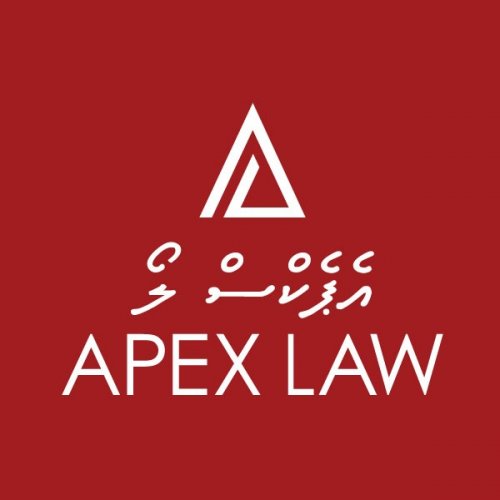Best Nonprofit & Charitable Organizations Lawyers in Malé
Share your needs with us, get contacted by law firms.
Free. Takes 2 min.
List of the best lawyers in Malé, Maldives
About Nonprofit & Charitable Organizations Law in Malé, Maldives
Nonprofit and charitable organizations in Malé, Maldives, play an important role in addressing various social, environmental, and economic issues. These organizations are often formed to provide public service and are typically driven by goals such as alleviating poverty, supporting education, and promoting health and environment-related initiatives. Maldivian law regulates these entities to ensure they operate transparently and effectively while maintaining their nonprofit nature. Organizations in this sector can take forms such as charities, foundations, and associations.
Why You May Need a Lawyer
Legal assistance can be crucial at multiple stages of establishing or running a nonprofit or charitable organization in Malé, Maldives. Here are some common situations where legal help might be necessary:
- Establishing the nonprofit: Legal professionals can help define the structure, draft articles of incorporation, and ensure compliance with local laws.
- Registration: Navigating the registration process with the relevant authorities requires understanding the requisite documentations and procedures.
- Tax considerations: Lawyers can advise on tax exemptions and implications, helping nonprofits maximize their resources for charitable purposes.
- Compliance: Regular legal advice is needed to adhere to evolving regulations and maintain good standing with government agencies.
- Conflict resolution: Disputes could arise within the organization or with third parties, requiring legal mediation or representation.
Local Laws Overview
Several key laws and regulations govern nonprofit and charitable organizations in Malé, Maldives, aiming to ensure transparency and accountability in their operations. Important aspects include:
- Registration and Incorporation: Nonprofits must be formally registered with the Ministry of Home Affairs, adhering to specific rules regarding their formation and operations.
- Tax Exemptions: Many nonprofits are eligible for certain tax exemptions, but they must meet defined criteria and maintain compliance with local financial regulations.
- Financial Reporting: Organizations are required to regularly report their financial activities, ensuring funds are used according to their stated mission.
- Operational Transparency: Maintaining records of decision-making processes and demonstrating how funds are utilized is legally mandated.
- Governance Structures: Compliance with laws relating to board composition and organizational governance is crucial for legal operation.
Frequently Asked Questions
What is required to start a nonprofit organization in Malé?
To start a nonprofit, you must prepare foundational documents such as a mission statement, bylaws, and articles of incorporation, followed by a formal registration with relevant authorities.
Are nonprofits in the Maldives tax-exempt?
Yes, but eligibility for tax exemptions depends on meeting specific criteria set by the Maldivian government. Consulting with a tax attorney can help clarify these requirements.
How can a lawyer assist with compliance issues?
A lawyer can ensure that your organization adheres to all applicable local laws, from registration to routine operations, thereby avoiding legal pitfalls that could hinder your goals.
What are the obligations for financial reporting for nonprofits?
Nonprofits must regularly submit financial reports to avoid penalties. These reports demonstrate accountability in the use of funds raised and spent.
Can a nonprofit organization engage in commercial activities?
Yes, but the primary objective of the activities must align with the organization's mission, and profits should be reinvested into its charitable purpose.
What constitutes a legal dispute for a nonprofit?
Disputes can range from governance issues within the organization to conflicts over contracts with external entities.
How can one dissolve a nonprofit organization legally?
Legal dissolution requires formal steps, including settling debts, distributing remaining assets according to legal obligations, and notifying relevant authorities.
What documentation is necessary to maintain compliance with local laws?
Maintaining bylaws, board resolutions, financial statements, meeting minutes, and membership records is essential for compliance.
Can foreign entities establish a nonprofit in Malé?
Foreign entities can establish nonprofits, but they must comply with Maldivian laws regarding foreign ownership and involvement in domestic nonprofit activities.
Is insurance necessary for nonprofit organizations in the Maldives?
While not mandatory, obtaining insurance can protect against liabilities and is advisable for managing risks associated with nonprofit operations.
Additional Resources
If you need further guidance on nonprofit and charitable organizations in Malé, Maldives, the following resources can be helpful:
- Ministry of Home Affairs: Responsible for the registration and oversight of nonprofit organizations.
- Maldives Inland Revenue Authority: Provides information on tax obligations and exemptions.
- Law Society of Maldives: Offers listings and information about lawyers specializing in nonprofit law.
- NonprofitNetworks.mv: An organization providing support and resources for nonprofits in the region.
Next Steps
If you need legal assistance in setting up or managing a nonprofit organization in Malé, Maldives, consider reaching out to a lawyer specializing in nonprofit law. They can offer personalized guidance to ensure your organization operates within the legal framework. Begin by gathering all necessary documents, clarifying your objectives, and seeking professional legal advice to navigate the complexities of the law effectively.
Lawzana helps you find the best lawyers and law firms in Malé through a curated and pre-screened list of qualified legal professionals. Our platform offers rankings and detailed profiles of attorneys and law firms, allowing you to compare based on practice areas, including Nonprofit & Charitable Organizations, experience, and client feedback.
Each profile includes a description of the firm's areas of practice, client reviews, team members and partners, year of establishment, spoken languages, office locations, contact information, social media presence, and any published articles or resources. Most firms on our platform speak English and are experienced in both local and international legal matters.
Get a quote from top-rated law firms in Malé, Maldives — quickly, securely, and without unnecessary hassle.
Disclaimer:
The information provided on this page is for general informational purposes only and does not constitute legal advice. While we strive to ensure the accuracy and relevance of the content, legal information may change over time, and interpretations of the law can vary. You should always consult with a qualified legal professional for advice specific to your situation.
We disclaim all liability for actions taken or not taken based on the content of this page. If you believe any information is incorrect or outdated, please contact us, and we will review and update it where appropriate.

















